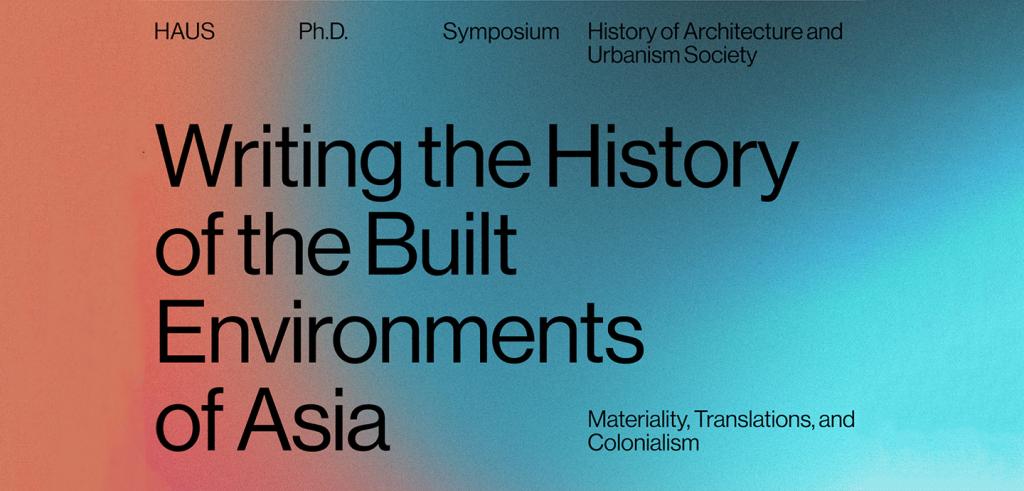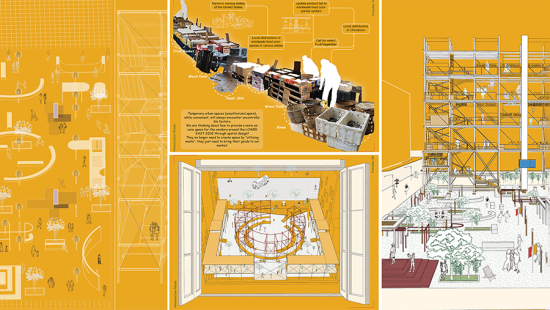Writing the History of the Built Environments of Asia: Materiality, Translations, and Colonialism

image / provided
Overview
Organized by the doctoral students of Cornell University's History of Architecture and Urban Development program, "Writing the History of the Built Environments of Asia: Materiality, Translations, and Colonialism" seeks to discuss new approaches that prioritize material cultures in studying the colonial built environments of Asia. We invite graduate students to rethink together the previously established disciplinary and geographical boundaries of this large continent by focusing on cross-border connections, extractive economies, global and local translations, and multispecies entanglements.
The term "Asia" has been used to refer to vast and different lands, including those in West Asia, Central Asia, South Asia, and Southeast Asia. In our reimagination, knowledge on Asia acknowledges the multiplicities of these different lands, as well as connections, monetary exchanges, and translations within, into, and from it. Part of our intention in broadening the scope of our understanding of Asia and the built environment, both conceptually and methodologically, is to extend beyond the previously limited frameworks consisting of architecture and landscape.
We call for studies of the environment that include previously understudied material aspects and agents of the built environment. This material ecology includes but is not limited to fluid or abject materialities, living and dead organisms, and apparatuses that complicate the constructed categories, which would unsettle established official narratives, colonial efforts, and human-centric ontologies.
This semester's April 22nd symposium is open to the public.
Please note: the April 21st workshop is open to only symposium speakers and members of HAUS.
April 21 | Workshop
Global South Approaches in Architectural Studies
Introduction
5–5:05 p.m.
Global South Approaches: Non-Aligned Modernism
5:05–5:25 p.m.
Anoma Pieris, The University of Melbourne
Following the Footnote
5:25–5:45 p.m.
LEE Kah-Wee, National University of Singapore
Third World Communicationism
5:45–6:05 p.m.
Farhan Karim, University of Kansas
Break
6:05–6:15 p.m.
Parallel Discussions
6:15–6:45 p.m.
Report
6:45–7:05 p.m.
Conclusion
7:05–7:10 p.m.
April 22 | Symposium
Keynote Speaker
12 p.m.
Nida Rehman, Lucian & Rita Caste Assistant Professor, School of Architecture, Carnegie Mellon University
Break
1–1:15 p.m.
Panel 1
1:15 p.m.
"Power of Planning: Early 20th Century Pacification and Public Works in the Philippine Islands"
- Chrionni Bernard Decrepito, University of San Carlos
1:35 p.m.
"Water and Memory: Fountains, Heritage, and Infrastructure in Istanbul and Tehran"
- Sharon Mizbani, Yale University
1:55 p.m.
"Infrastructuring Migration: The Logistics of Labor in the East Coast of Sumatra"
- Robin Hartanto Honggare, Columbia University
2:15 p.m.
Response
- Ecem Saricayir, Cornell University
2:30 p.m.
Discussion
Panel 2
3 p.m.
"Canal Colonies in Punjab: Labor, Property, and Water in Colonial India (1842-1935)"
- Javairia Shahid, Columbia University, History of Architecture
3:20 p.m.
"'Catastrophic' sand not water: Prognostic conceptualization of riverine sand as 'problem'"
- Saumya Pandey, Chr. Michelsen Institute, Norway and University of Ghent
3:40 p.m.
"Restoration as a Collaborative Enterprise: The case of Bathing-Ghats in Nineteenth Century Mathura"
- Paridhi David Massey, Ashoka University
4 p.m.
Response
- Labib Hossain, Cornell University
4:15 p.m.
Discussion







